|
Irvin Rosenfeld, one of only two medical marijuana patients in the U.S. who get their supply from the federal government, is hoping to counsel local governments on the best ways to regulate and oversee medical cannabis now that Florida voters have passed Amendment 2. Jose A. Iglesias [email protected] Rosenfeld, who along with selling stocks runs My Medicine Consulting with his partner, Hiedi Handford, is hoping to work with South Florida cities to establish dispensary regulations, navigate conflicting state and federal laws and help them deal with the crush of patients coming down the pike. They note that treatments are specifically tailored to patients down to the dose, strain of marijuana and application, and that the industry is highly regulated by the state. If you’re eligible for medical pot, how easy will it be to get? Depends on where you live BY DAVID SMILEY [email protected] When Irvin Rosenfeld runs low on his monthly allotment of federal government marijuana, the Lauderhill stock broker drives south for about an hour to Miami’s health district, the only location where he can legally pick up a circular tin packed with 300 joints. It’s inconvenient: The pot he smokes every day to fight and treat a rare and painful bone tumor disorder is what allows him to make the drive. But like most other medical marijuana patients in Florida, the options for acquiring his medicine remain limited — for now. As the state prepares to expand its highly restrictive medical cannabis program on Jan. 3 following the overwhelming passage of Amendment 2, dispensaries providing oils, low-THC pills, vape pens and other products are expected to pop up by the hundreds around the state. Given that federal law keeps pharmacies from distributing marijuana, dispensaries will likely be a key cog in a fledgling industry that today requires the vast majority of legal users to receive their medication by personal delivery. But there’s uncertainty about how and when that will happen. State legislators and the Department of Health will likely set the parameters for the expanded program by June, which figures to be its own battle. But just as important as patients’ access to their medication is how — and whether — cities and counties regulate the location and operation of dispensaries, which critics fret will flood neighborhoods with “seedy elements” of the drug industry. “Take Miami. Can you imagine if you’ve got 20 cities that do it and 10 that don’t?” said Rosenfeld, who plans to keep the rare federal prescription that gives him access to smokeable marijuana “flower” but also participate in the state’s separate, expanded program. “There’s got to be a way to implement it in a way that all the communities see the benefits.” The process has already begun. In January, Trulieve, one of six cultivators licensed by the state to grow marijuana, expects to open a storefront in the industrial zone directly east of Miami International Airport, one of the areas where Miami-Dade County has authorized the establishment of medical pot dispensaries. Four other locations have been approved by the county, although for now Costa Farms’ Modern Health Concepts headquarters in Redland is the only physical location in South Florida where a patient can legally pick up marijuana products under the state’s program. But expansion is coming. This month, North Miami Beach passed zoning laws that effectively limit storefronts where marijuana products can be purchased (but not consumed) to about six or seven locations near Jackson North Medical Center and along Biscayne Boulevard. The regulations keep dispensaries a certain distance from schools and churches. Jose Smith, North Miami Beach’s city attorney, said his office heavily studied Florida’s medicinal marijuana laws before crafting legislation passed by the city council. Initially, Smith thought the community would want to regulate dispensaries in a way that would effectively ban them, but instead he said the council took a “progressive” mindset. “I’m sure that a lot of cities are going to try to zone it out [through over-regulation], and my research is to the effect that once the Legislature says something is legal, you can’t do that,” said Smith. “You can’t say we’re not going to have strip clubs in our city, and you can’t say we’re not going to have marijuana dispensaries in our city because it’s a legal business.” But the issue may not be that simple. Due to federal laws that continue to hold that marijuana is an illicit drug without medicinal value, some cities say the conflict between state and federal law prohibits dispensaries. Miami, the largest city in South Florida, holds that opinion today, as does Coral Gables, where a 2014 law regulating dispensaries allows them only if the city attorney opines that medical marijuana is legal both under state and federal law. “It’s still unsettled whether [dispensaries] are really legal or not,” said city attorney Craig Leen. Underscoring that point, states have been left alone by the U.S. Department of Justice to legalize and expand marijuana usage under President Obama’s recent policy of ignoring state-sanctioned operations previously subject to federal crackdowns. But some question whether that will change under President-elect Donald Trump and his pick for attorney general, U.S. Senator Jeff Sessions, who earlier this year called marijuana “dangerous.” Another complication for cities caused by the federal government’s stance on marijuana: Most banks remain wary of doing business with marijuana dispensaries, meaning many storefronts could be cash-only operations. For the most part, though, South Florida municipalities are monitoring Amendment 2 but have passed no laws and made no decisions on how and whether to regulate dispensaries. Broward County’s government, for instance, is undecided. Others, including Miami Beachand Hialeah, have implemented temporary bans on dispensaries, which has been both hailed and criticized. “They should be moving very, very slowly,” said Gerald Greenspoon, a lawyer and co-founder of Greenspoon Marder, which has a cannabis practice. “[Cities] don’t have the implementing state legislation yet, nor state regulation by the Department of Health stating what is and what isn’t permitted.” How these municipalities move forward won’t determine whether a state-estimated half-million future patients receive their medication, since they can receive up to a 45-day supply through delivery. It may not even be the biggest issue affecting access, which some physicians say is prohibitively restricted by Florida’s current requirement that patients hold a relationship with a state-certified doctor for three months before being accepted into the state’s compassionate-use registry and receiving medical marijuana. But the prevalence and existence of dispensaries — which Amendment 2 opponents warned would bring “seedy elements of the pot industry” next door to churches and schools — could go a long way toward normalizing the medical use of marijuana and ensuring patients receive the same kind of guidance afforded someone picking up antibiotics from a Walgreens. When Amendment 2 kicks in, Florida’s program, currently limited to fewer than 1,000 patients suffering from terminal illness and chronic seizures and spasms, will open to scores also dealing with HIV, glaucoma, PTSD, Crohn’s disease, multiple sclerosis and other debilitating conditions. “We want to be treated as a pharmacy because we’re delivering medicine,” said Richard Young, CEO of Modern Health Concepts. Rosenfeld, who along with selling stocks runs My Medicine Consulting with his partner, Hiedi Handford, is hoping to work with South Florida cities to establish dispensary regulations, navigate conflicting state and federal laws and help them deal with the crush of patients coming down the pike. They note that treatments are specifically tailored to patients down to the dose, strain of marijuana and application, and that the industry is highly regulated by the state. “We’re not slinging weed here,” he said. “We’re providing medicine.” Read more here: http://www.miamiherald.com/news/local/community/miami-dade/article117065203.html#storylink=cpy Thank you to the Miami Herald, David Smiley, and Jose Iglesias
For Immediate release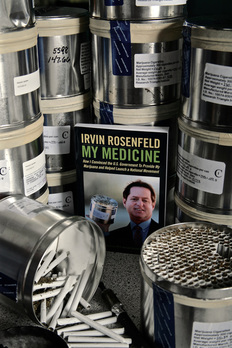 ***** PRESS RELEASE ***** Federal Patient Irvin Rosenfeld Celebrates 35 Years of Winning His Fight Against the US Government and Expands His Consulting Services to Business Leaders in Florida. Irvin Rosenfeld fought the Government. In 1972 Irvin discovered that Cannabis worked for his debilitating bone condition and he did not want to be a criminal. He was a patient. So, he set his heels in, took on the Federal Government and he won. For full details of his fight, please be sure to get a copy of his book My Medicine ~ How I Convinced the US Government To Provide My Marijuana and Helped Launch a National Movement - just click on image to get yours. Today, because of medical cannabis, Irvin is productive and thriving. Over his 44 years of reform experience, Irvin has witnessed first hand vast change in our country with the ever changing views of the people and the enacting and implementation of cannabis laws across our great Nation. Having traveled extensively across many states to help them change their laws and then witness laws in action has garnered a unique experience and perspective for Irvin. Book tours across the Nation placed him in multitudes of dispensaries where he met many, many new pioneers/owners of Canna Businesses and thousands of patients. Now, Irvin is taking his extensive experience and knowledge and is offering his services to business leaders in Florida who want to enter into Florida’s Canna Business community. My Medicine Consulting is the pinnacle of his career and advocacy for Cannabis and Cannabis reform. Help Irvin celebrate his 35 years of receiving “Meds from the Feds” and winning his fight by visiting his website www.MyMedicineConsulting.com and sharing it with interested parties. Client spaces are LIMITED, so be sure to get your application TODAY. Florida patients deserve the most patient friendly atmosphere that can be generated. Let Irvin assist you in ensuring that happens. Be sure to pop your contact information in to stay appraised of what is going on in Florida and be sure to join Florida Patients & Families United to help give the patients a VOICE. Join our group here: http://www.mymedicineconsulting.com/fpfu.html MEDIA: Contact 202-760-1924 to schedule interview The newspaper clipping above is from the Monday, November 14, 2016 Sun Sentinel.
Unbeknownst to many potential "Green Rush" pioneers in Florida, many communities across Florida have placed a ban on Dispenary's, or are preparing to. This does NOT mean you cannot attempt to place your dispensary in these areas. What it does mean is, you need to establish and build a relationship with your communities. Determine where you're going to set up shop that is accessible to patients, and not wind up zoned into a warehouse district, or the Everglades. Assess the needs of community and be sure there is handicap accessibility and that patients needs can and will be met. Ensure security is in place, and patients are safe at all times, as well as employees and neighbors. Still, this is only the tip of the iceberg. We have a lot of work to do. No matter how we may love this blossoming new industry and see it as the best thing since sliced bread, our neighbors don't necessarily feel the same way. It's our job to introduce them to the industry, educate them on the special needs of this new, booming industry, and alleviate their fears that come with the industry. We must address the issues head on, like climbing a mountain, one step at a time, straightforward and to the point. You can't hide from the hill. Irvin Rosenfeld has navigated these issues for years now in his fight for cannabis. 44 years of experience he brings to this fight. If you're looking to ride the wave of the Green Rush in Florida, Irv & Hiedi are the team to have fight for you and your budding business as you develop those relationships, build trust with your neighbors, and pioneer this wonderful industry in the Great Sunshine State. If you liked this story, please share. If you want to work with us, please call 202-760-1924 or 954-536-9011 We look forward to working with you! Irv & Hiedi |
AuthorsThis blog will be authored exclusively by Irvin Rosenfeld & Hiedi Handford of My Medicine Consulting. Archives
January 2017
Categories |
The greatest influence in my life was my Father. My Father was a single parent for all but the first six years of my life. My mother, tragically, took her life in 1972 due to unresolved mental health issues. The solution to depression in 1972 was a prescription for Valium. It was also a way to commit suicide very effectively, and a major reason why I do what I do today. To help those suffering find the best solution for their health issues and provide hope and healing. In 1972, my mother didn’t have those options.
I intend to change that for as many people as I can.
My Father was a very compassionate man, and very logical with his wisdom. Under his tutelage his three children thrived. Pop never remarried or even had a girlfriend. He was dedicated to his children and ensuring they had the best upbringing possible.
My Father taught me so many things over the years. His greatest gift was tenacity. Never give up!
He also taught me “A Jack/Jill of all trades is a master of none, but oftentimes better than a master of one”
I took that compliment very seriously and over decades have broadened my knowledge base exponentially in many areas. It is due to this expanded knowledge that I do very well at not only interpreting health and wellness problems, but finding solutions and thinking outside the box. Tough cases are a great challenge for me and I thrive on finding solutions and teaching people how to care for themselves with my methods.
I attended college in the late 80’s and got my Psychology degree the summer of 1992 after I lost my third child to SIDS. That loss shaped much of my work today and brought great understanding and compassion for my clients who have sick children. I have specialized in pediatrics for over 14 years now.
Most people look at a psychology degree as a person conducting therapy. I have never had a desire to conduct therapy sessions, as I discovered in college I LOVE being in the lab. Studying the brain and receptor science is my passion. In 2009 I learned about the endocannabinoid system, and it has been my main focus for treatment ever since. The endocannabinoid system is amazing, and a true key to the best health and wellness an individual can achieve.
With my terpenes, I can direct my treatments along the endocannabinoid system directly to where they need to go to work.
I intend to change that for as many people as I can.
My Father was a very compassionate man, and very logical with his wisdom. Under his tutelage his three children thrived. Pop never remarried or even had a girlfriend. He was dedicated to his children and ensuring they had the best upbringing possible.
My Father taught me so many things over the years. His greatest gift was tenacity. Never give up!
He also taught me “A Jack/Jill of all trades is a master of none, but oftentimes better than a master of one”
I took that compliment very seriously and over decades have broadened my knowledge base exponentially in many areas. It is due to this expanded knowledge that I do very well at not only interpreting health and wellness problems, but finding solutions and thinking outside the box. Tough cases are a great challenge for me and I thrive on finding solutions and teaching people how to care for themselves with my methods.
I attended college in the late 80’s and got my Psychology degree the summer of 1992 after I lost my third child to SIDS. That loss shaped much of my work today and brought great understanding and compassion for my clients who have sick children. I have specialized in pediatrics for over 14 years now.
Most people look at a psychology degree as a person conducting therapy. I have never had a desire to conduct therapy sessions, as I discovered in college I LOVE being in the lab. Studying the brain and receptor science is my passion. In 2009 I learned about the endocannabinoid system, and it has been my main focus for treatment ever since. The endocannabinoid system is amazing, and a true key to the best health and wellness an individual can achieve.
With my terpenes, I can direct my treatments along the endocannabinoid system directly to where they need to go to work.
I’ve been self employed in the wellness industry for over a decade. I have garnered a wealth of knowledge in that time. Knowledge that can benefit you. I have had my BA is psychology since 1992.
I’m also a helper, and helping people brings me great happiness.
Over the years I have adapted my services to meet people’s needs. A personal assistant “on demand” I would call it.
My hope is that people will find value in my services, knowledge, and passion for plant medicine.
I’m especially good at stopping nausea from chemo and radiation.
My hope is to bring Happiness to your life TODAY.
I’m also a helper, and helping people brings me great happiness.
Over the years I have adapted my services to meet people’s needs. A personal assistant “on demand” I would call it.
My hope is that people will find value in my services, knowledge, and passion for plant medicine.
I’m especially good at stopping nausea from chemo and radiation.
My hope is to bring Happiness to your life TODAY.
305-978-3595
Services Offered
- Health and wellness with plant medicine
- Assistance with protocols and weeding out the medicine cabinet
- Specialize in Cancer therapies, and stopping nausea.
- Personalized and comprehensive treatment for Autism. Please read up HERE
- Pain management
- Anxiety
- Depression
- Most any condition considered
- Family education and counseling
- Development of successful protocols
- Death doula, conversations and assistance for patient and family through transition.
- Care services
- Public speaking and education
- Custom CBD formulas designed specifically for you
- Pet services. Animals benefit greatly from CBD.
Client Testimonials
Below you will find client testimonials. I am so very honored and humbled to have been able to help them through some of the most difficult times of their lives. Each moment with these families is a blessing I cherish.
Hiedi provided the highest quality of plant based medication for my son, EJ, who was diagnosed with a grade II Astrocytoma in 2015.
I began my journey of exploring natural medicine shortly after this diagnosis. The struggle of finding clean, quality ingredients in South Florida at the time was extremely difficult.
Through the grace of God, Hiedi was placed in my life just when my son was in terrible danger. Hiedi was referred by the only CBD company I trusted at the time, Green Roads.
Hiedi was able to immediately recognize that the medicine I was using was toxic and she helped save my son's life.
Hiedi quickly became what seemed to be like an extended member of my family very quickly. As my son's condition progressed, she was able to adapt to the new obstacles and still find a way to make sure that EJ got his medicine.
Her warm approach to each and every one of her patients helps provide a sense of hope during what may be one of the most difficult times.
There are no words that can truly describe the amount of gratitude my heart holds for her. My family and I will love you for long and forever💚 #teamEJ “
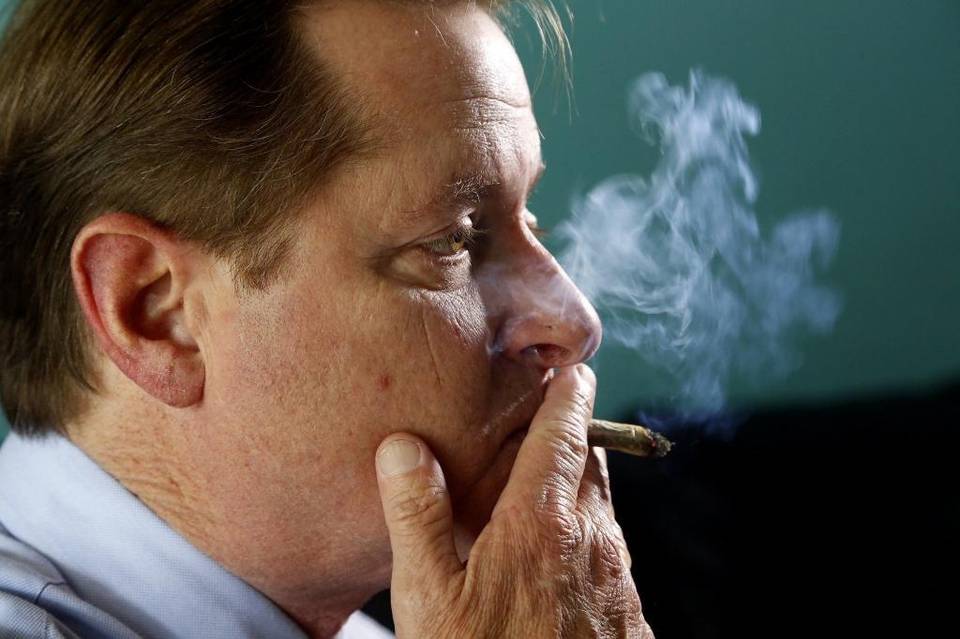
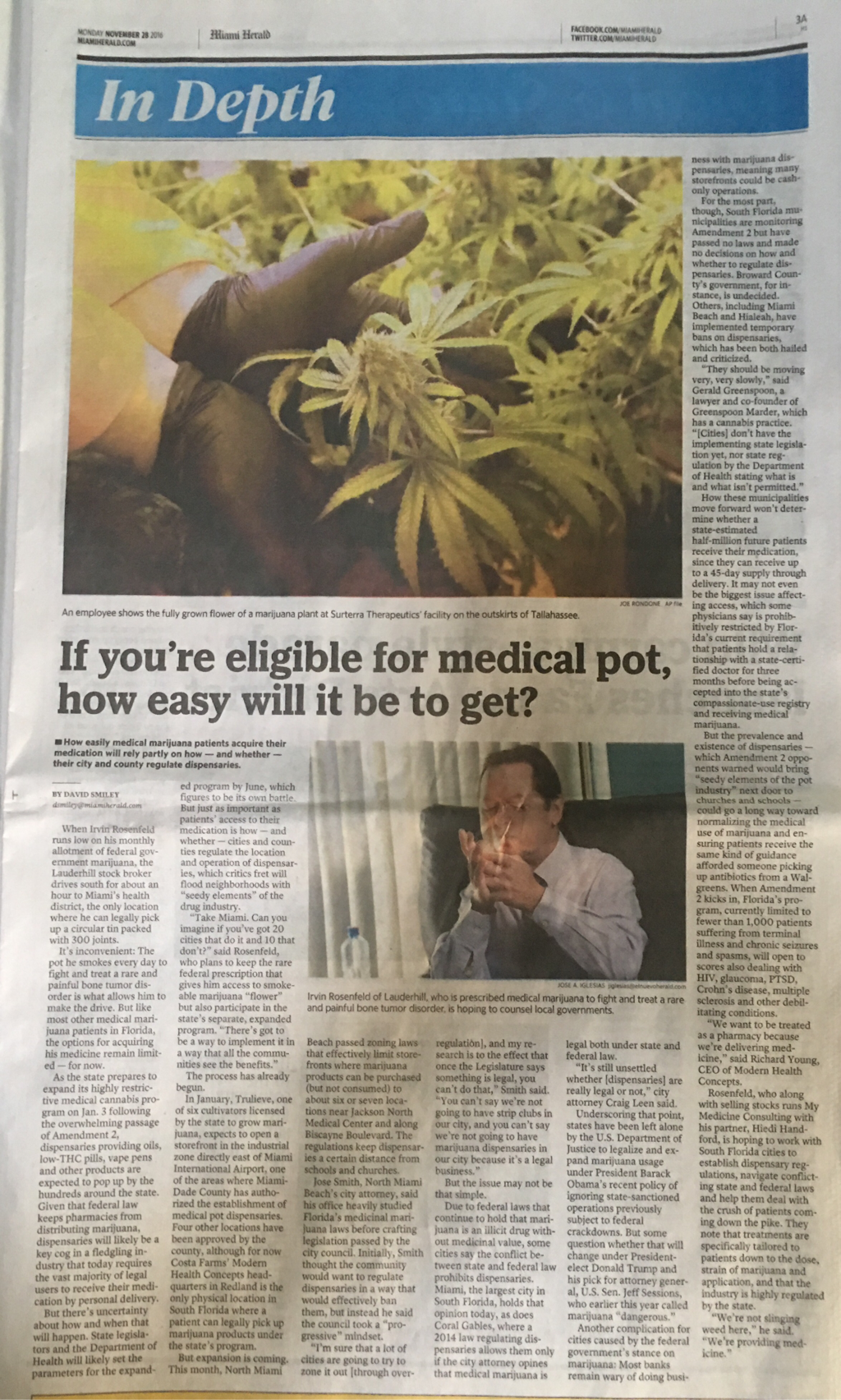
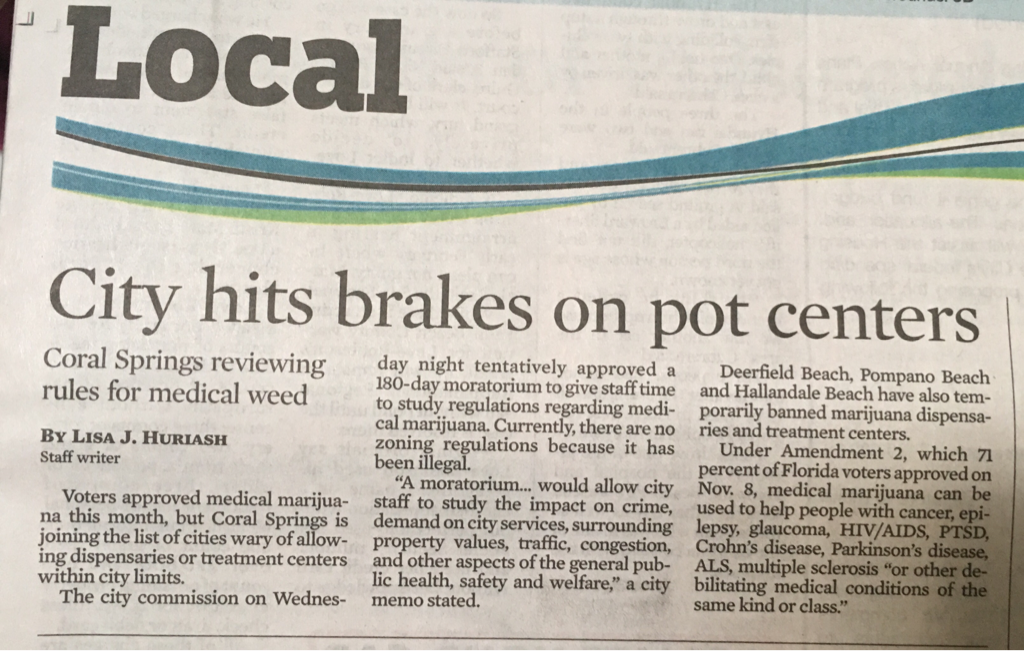
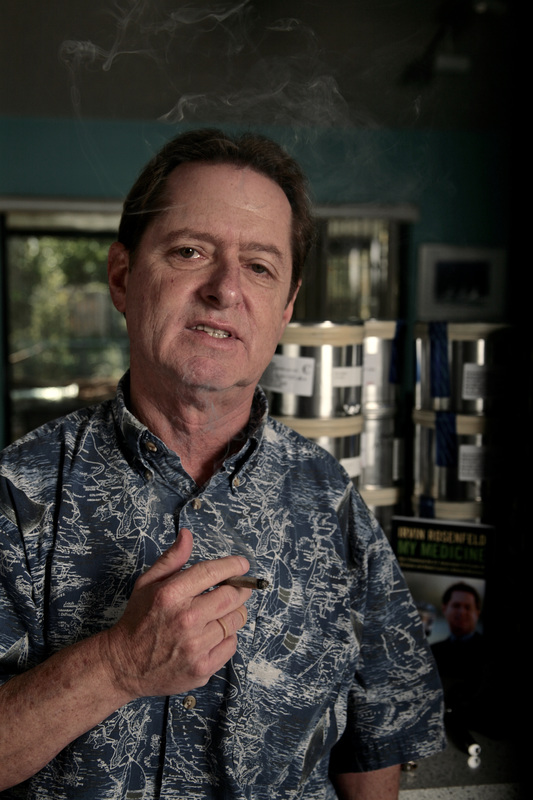


 RSS Feed
RSS Feed



